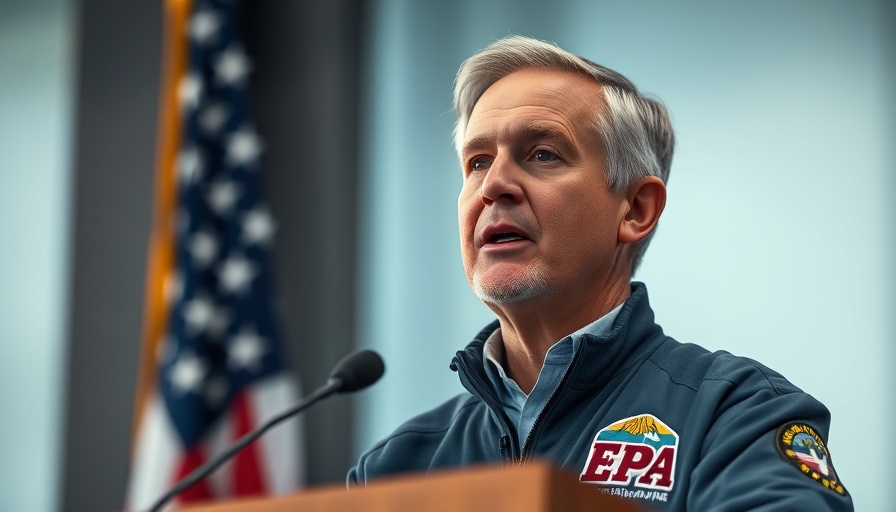
Urgent Calls for Action: The Tijuana Sewage Crisis
The recent remarks by EPA Administrator Lee Zeldin have reignited concerns over the long-standing sewage crisis originating from Tijuana, Mexico. For two decades, this issue has plagued the South Bay coast, with billions of gallons of raw sewage seeping into U.S. waters. This not only endangers public health but also reflects a glaring international oversight.
Visitors to San Diego often question why the U.S. government hasn’t taken a more proactive stance against a neighboring country causing such environmental damage. The implication here is significant: if one country inflicts damage upon another due to negligence, it can be considered a hostile act under international law.
Why Recent Developments Matter
Just last week, Zeldin emphasized a shift in U.S. posture regarding the sewage flows. His unequivocal statement that Mexico must implement permanent solutions marks a pivotal moment. Zeldin’s intended visit to the border area in the coming weeks is indicative of a more hands-on approach from the federal level.
The urgency of this matter is compounded by current U.S. administration strategies that revolve around trade negotiations and cartel control, specifically regarding fentanyl. As the U.S. demands action on multiple fronts, the potential for sewage management to rise as a priority is particularly crucial for local San Diegans.
The Risk of Inaction
Yet, there lies a twist to this evolving story. The same administration that is now calling for action has historically shown reluctance to invest in federal solutions. For example, there has been opposition to designating the Tijuana River Valley as a Superfund site, which would enable more robust funding for clean-up efforts.
Furthermore, the proposed allocation of $650 million for refurbishing wastewater facilities hangs in a precarious balance. With the administration's goal to reduce federal spending, there’s a looming threat that allocated funds may be retracted if Mexico fails to comply — further exacerbating the sewage emergency.
Community Perspective: The Local Call to Action
San Diegans are caught in a difficult situation. The community has seen some progress towards mitigating the sewage leaks, but this headway could be undone. Local leaders like Rep. Scott Peters advocate for infrastructure investment as a critical step toward solving this crisis. As the pressure mounts on Mexican leadership, solutions must be prioritized to avoid slipping back into a cycle of neglect and ineffectiveness.
The onus, therefore, seems to lie in Mexico's hands. President Claudia Sheinbaum must recognize the importance of immediate action to fix the broken infrastructure in Tijuana. If her leadership ensures accountability, it could lead to an overdue resolution for a crisis affecting thousands in San Diego.
Potential Outcomes and Moving Forward
The entangled issues surrounding sewage management from Tijuana highlight the complexity of U.S.-Mexico relations. With trade negotiations potentially influencing environmental management, the outcomes are fraught with uncertainty.
Given the intensified scrutiny and potential diplomatic fallout, it becomes increasingly clear that addressing the sewage crisis is not just about environmental health—it's about fostering a cooperative approach that acknowledges the shared responsibilities between nations.
This unique situation presents San Diegans and officials with the opportunity to advocate for effective solutions while fostering international collaboration. Only by robustly engaging in these discussions can we hope to see a significant change.
 Add Row
Add Row  Add
Add 




 Add Row
Add Row  Add
Add 

Write A Comment